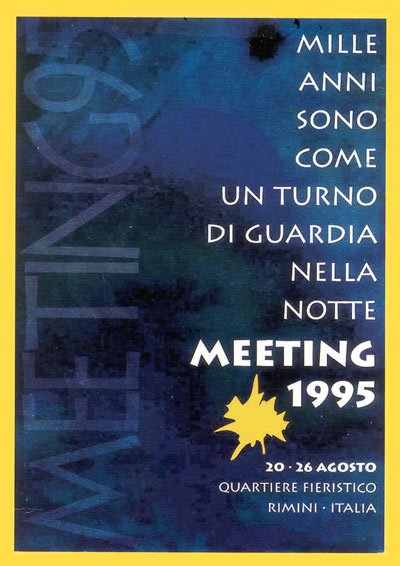
1995 Edition

A thousand years are like a spell of guard duty in the night
'It is well known that each year the Rimini Meeting centres on a great human value under discussion as a result of the events of our time. This time it is the turn of the value and significance of history, and therefore of everything which has occurred, and which has occurred to us. Not only the multi-millennial history of mankind and peoples, but equally that of each human being, of each of us. According to the beliefs of ancient paganism, the souls of -the dead, before achieving the peaceful calm of the Elysian Fields, hat to drink the waters of the River Lethe, thereby forgetting life on this earth with all its troubles. It should be remembered that Kierkegaard, the great Danish thinker, underlined that this legend emphasizes the relationship of "polemic nega-tiveness" between life today and in the future. Memory is thus seen as a burden that must be discarded if eternal happiness is truly to be found. The refusal of reality spurs people to hide behind the fleeting moment, in a continuous see-saw of fanciful expectations and disenchanted disappointments. The query being put by the Meeting on the other hand is whether the present cannot already be the place and occasion for living life with meaning. The question is all the more interesting and stimulating if a parallel is drawn, because for those who organize the Meeting, this is already an experience under way. The Rimini Meeting is a great feast of life, of entertainment and culture, where creativeness and the ability to encounter other human beings, both part of the Christian view of the world, are lived and practised in a concrete way. For a number of days, life is lived and creativity flourishes within a cultural proposal more open than that which predominates in the world today. In this sense it is an interesting experience for any attentive, lively and curious person, whatever his outlook on the world.'









